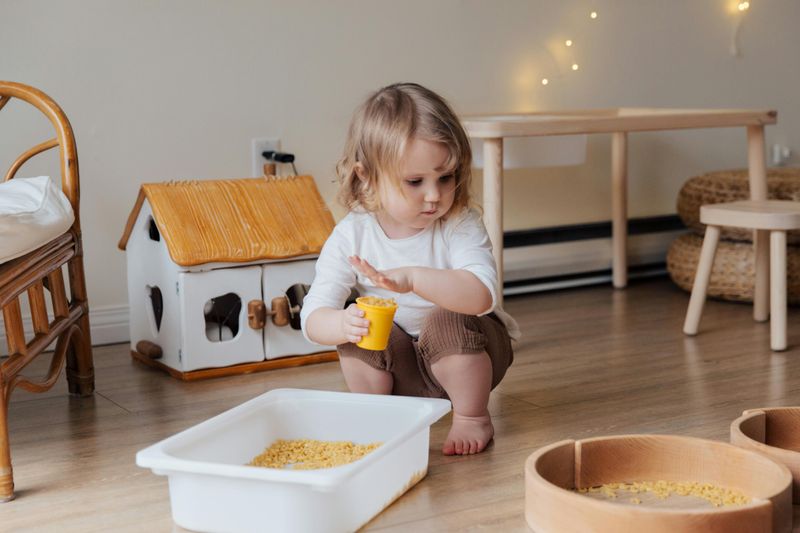Parents Who Raise the Most Resilient Kids All Do These 7 Things

Every parent hopes their child will grow up strong enough to handle life’s curveballs, yet gentle enough to remain kind along the way. The truth is, resilience isn’t something kids are simply born with—it’s a skill that’s taught, nurtured, and modeled daily. Some parents unintentionally shield their kids too much, while others strike the balance between support and independence just right.
1. Let Their Kids Fail (and Learn From It)

It can feel gut-wrenching to watch your child stumble, whether it’s losing a soccer game or bombing a spelling test. But those small defeats are powerful teachers. Kids who never experience failure also never learn how to recover from it.
Parents who encourage resilience see failure not as the end, but as a stepping stone. They let their kids fall, dust themselves off, and try again. This doesn’t mean standing back with arms crossed—it means being there for comfort and guidance, while resisting the urge to swoop in and fix everything.
The result? Children who grow up understanding that setbacks are part of life, and that success often comes only after a few stumbles along the way.
2. Model Healthy Coping Strategies

Children are always watching, and how parents handle stress sends a louder message than any lecture. If every minor inconvenience turns into a meltdown, kids learn that chaos is the default response. But when parents breathe deeply, talk through their feelings, or calmly problem-solve, kids absorb those habits like sponges.
Resilient families treat challenges as opportunities to practice calm and patience. Instead of saying “don’t worry,” they demonstrate what working through worry looks like—taking a walk, journaling, or talking it out.
By consistently modeling healthy coping strategies, parents show their kids that emotions aren’t something to fear or suppress. They’re signals we can manage, control, and learn from, which is the cornerstone of resilience.
3. Set Clear Boundaries and Expectations

Resilient kids aren’t raised in free-for-all environments where anything goes. They thrive when they know the rules of the game. Boundaries provide a sense of safety, and expectations set the standard for how kids should behave, treat others, and approach responsibilities.
Parents who raise resilient kids don’t confuse structure with rigidity. They explain why rules exist and apply them with consistency, while leaving room for discussion and understanding.
When kids know what’s expected, they feel more secure in exploring the world around them. That security builds confidence, which in turn fuels resilience. Instead of fearing consequences or constantly testing limits, kids can focus on growth and independence within the guardrails their parents set.
4. Encourage Problem-Solving Instead of Giving Quick Answers

Life hands out enough puzzles on its own, and kids need practice putting the pieces together. When parents instantly jump in with solutions, they rob their children of the chance to figure things out themselves.
Resilient parents take a different approach. If a child is stuck on homework or facing a tricky situation with a friend, instead of handing over the answer, they ask questions like: “What do you think could work?” or “What’s another way to look at this?”
This method builds critical thinking and self-reliance. Children learn that while help is available, they also have the tools to solve problems on their own. That confidence is what allows them to face bigger challenges later in life.
5. Teach Optimism and Reframe Challenges

A child’s outlook often mirrors their parents’ mindset. When parents treat setbacks like permanent disasters, kids pick up the same habit. But when they hear phrases like “this is tough, but we can figure it out” or “what can we learn from this?” they begin to reframe challenges.
Resilient parents know optimism isn’t about pretending everything is perfect. It’s about teaching kids to focus on what’s still possible, rather than what’s gone wrong.
By modeling positive self-talk and reframing obstacles, parents help their children develop mental flexibility. Instead of panicking when things go off-track, resilient kids pause, regroup, and move forward with confidence that tomorrow can be better.
6. Prioritize Connection and Emotional Safety

Behind every resilient child is at least one adult who makes them feel safe and valued. That emotional connection acts like an anchor in rough seas. Kids who know they are loved unconditionally are more willing to take risks, explore, and even fail, because they know they won’t face rejection at home.
Parents who foster resilience don’t just ask about grades or achievements—they ask about feelings, friendships, and worries. They listen without judgment and validate emotions, even when they don’t agree.
This consistent support builds trust. Children who feel secure in their relationships are better equipped to handle setbacks because they carry the quiet assurance that someone always has their back.
7. Celebrate Effort, Not Just Outcomes

Winning the game or acing the test feels great, but those moments are fleeting. What sticks with a child is how their effort is recognized along the way. Parents who focus only on results create kids who fear failure.
Resilient parents flip the script. They cheer for persistence, creativity, and determination. A child who hears “I love how hard you worked on that project” instead of only “Great job on the A!” learns that effort matters more than perfection.
Over time, this mindset builds grit. Kids grow up understanding that success isn’t about always winning—it’s about showing up, trying your best, and not giving up when things get tough. That’s true resilience in action.

Comments
Loading…